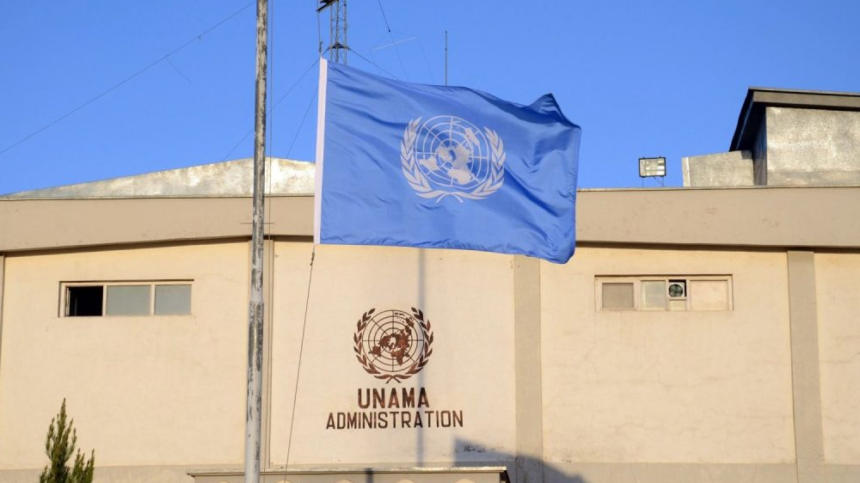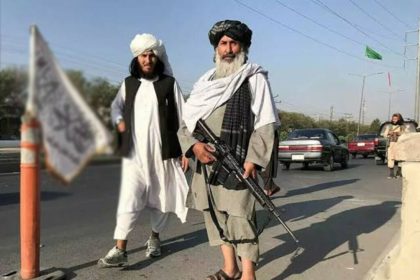RASC News Agency: The United Nations Assistance Mission in Afghanistan (UNAMA) has confirmed that at least 18 civilians were killed and more than 360 others wounded during the recent border clashes between Taliban forces and the Pakistani military. The preliminary figures, released on Thursday, October 16, highlight the devastating toll of the renewed hostilities that erupted along Afghanistan’s southeastern frontier.
In its statement, UNAMA welcomed the announcement of a temporary ceasefire between the two sides but underscored the urgent need to protect civilian lives and to bring an immediate end to the ongoing hostilities. The mission stressed that the victims include a significant number of women and children, with the highest casualties reported in Spin Boldak district of Kandahar province a flashpoint that witnessed intense exchanges of artillery and airstrikes on Wednesday.
According to UNAMA’s initial assessment, at least 17 civilians were killed and 346 others wounded in Spin Boldak alone. The agency also reported that previous border incidents in Paktika, Paktia, Kunar, and Helmand provinces resulted in one additional civilian death and 15 injuries. UNAMA reiterated its call for all parties to adhere to their international obligations, emphasizing the principles of distinction, proportionality, and precaution in the protection of civilian populations.
The renewed fighting began late Saturday after Taliban authorities claimed to have launched retaliatory attacks on Pakistani border posts in response to Islamabad’s airstrikes on Kabul and Paktika provinces. The Taliban asserted that their operations were defensive, while Pakistan accused the group of initiating the confrontation and vowed to respond “with full force.”
Tensions escalated dramatically on Tuesday along the Spin Boldak–Chaman crossing, one of the busiest trade and transit routes between Afghanistan and Pakistan. The Taliban accused Pakistan of conducting an unprovoked strike that killed 12 civilians and wounded over 100 others. Pakistan’s military, however, blamed the Taliban for provoking the clashes and destabilizing border security.
On Wednesday, Pakistan’s air force reportedly bombed several parts of Spin Boldak district, inflicting further civilian losses. Explosions were also heard later that day in Kabul, which multiple reports linked to Pakistani airstrikes. The Emergency Hospital in Kabul confirmed receiving five bodies and 35 injured victims, though local sources suggested that the real number of casualties was significantly higher than the hospital’s initial figures.
Despite the heavy fighting, both sides announced a ceasefire at approximately 5:30 p.m. local time on Wednesday, which Pakistani media described as a 48-hour truce. However, reports from Spin Boldak on Thursday indicated that the ceasefire was breached overnight, raising fears of renewed violence.
UNAMA reiterated that halting hostilities and safeguarding civilians must remain the highest priorities for both parties. The mission warned that continued clashes would not only increase human suffering but also deepen Afghanistan’s already dire humanitarian crisis, particularly in the volatile southern and eastern provinces.
Observers note that the Taliban’s inability to prevent such border escalations exposes their growing weakness and diplomatic isolation. Since seizing power, the Taliban regime has repeatedly failed to secure Afghanistan’s frontiers or establish credible diplomatic channels with its neighbors. Their lack of professional command structure and accountability mechanisms has turned Afghanistan’s border zones into theaters of instability where civilians pay the highest price.
While Pakistan bears its share of responsibility for cross-border aggression, the Taliban’s militarized and unaccountable governance continues to place Afghanistani civilians in grave danger. Their claims of sovereignty ring hollow in the face of mounting civilian casualties, economic collapse, and the regime’s inability to manage relations even with its closest neighbor.
UNAMA’s latest warning serves as yet another reminder of the cost of Afghanistan’s political vacuum a vacuum created and perpetuated by the Taliban’s isolationist rule. Without genuine accountability and a government that respects international law and human rights, Afghanistan’s borderlands will remain zones of perpetual suffering.






